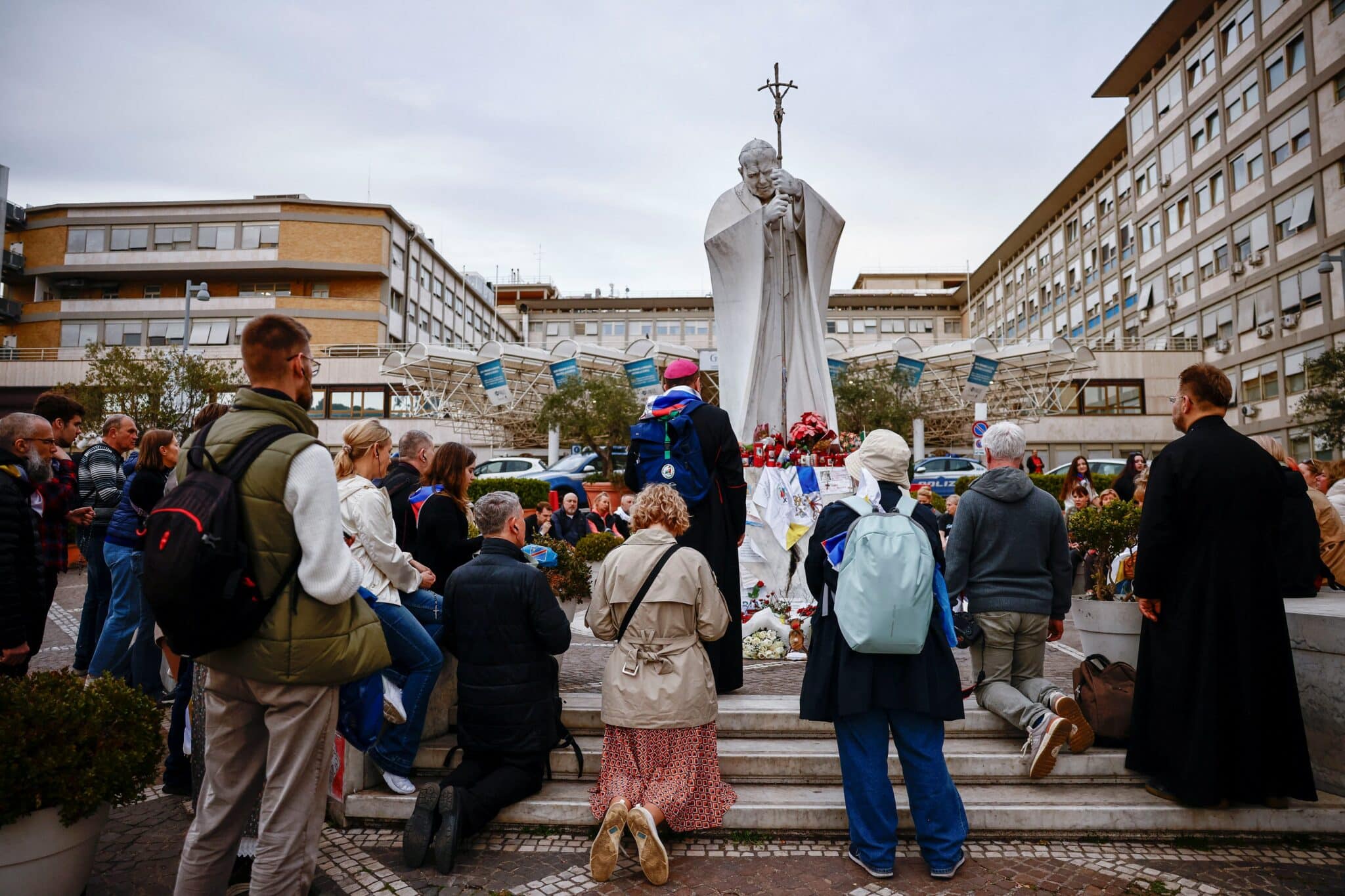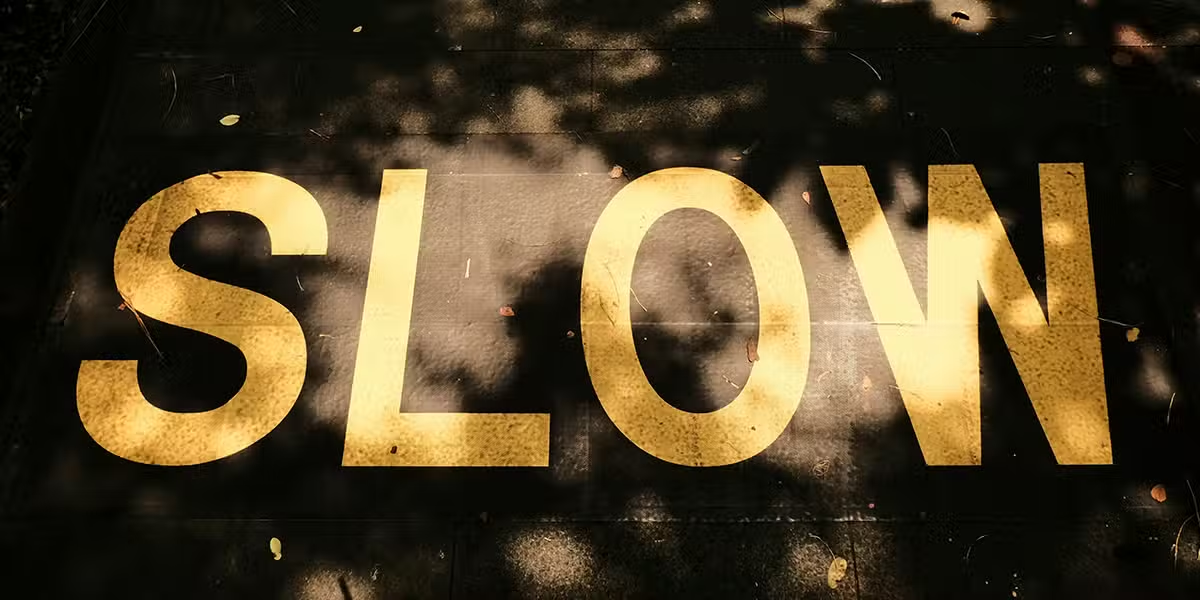“Lent is not an intellectual exercise, but an affair of the heart,” says this author. By centering ourselves in prayerful stillness, we open ourselves up to a deeper engagement with this holy season.
In his Lenten message several years ago, Pope Francis focused on our common humanity, our common hungers, and our common needs for spiritual fulfillment. He wrote that we all face three types of hunger: material (poverty), moral (sin), and spiritual (lack of a relationship with God). Each can be healed with the Gospel, but first, Francis wrote, we must be “converted to justice, equality, simplicity, and sharing.”
We are all hungry. We are destitute and desolate in our search for what will fill us. We usually know what we want; too often we do not know what we need. Do we want fortune? Do we want fame? Do we want a better car or a better house? Do we want more friends or fewer responsibilities?
These are questions of human life. Some are, or at least become, very real needs. Others are merely distracting temptations.
The one thing we really do need is to answer them. We need to pay attention to and select among the great kaleidoscope of choices life puts before us in such a way as to fulfill our legitimate desires without disrupting our own or others’ lives. We are always choosing between and among goods, but like the little girl in the toy store whose mother says she can choose just one doll, eventually we need to kiss the other choices goodbye.
So, how do we figure out what we truly need? How do we figure out, therefore, what we really want?
I think we find an answer in silence. Not the answer—at least not immediately—but at least the method, the path we can take (each of us) toward the way to find the answer for ourselves, and for no one else.
It is about prayer. It is about stillness. It is about stillness and silence in Lent.
In many parts of the world, Lent begins in the silent time of the year. The earth is gently awakening from its winter slumber, gradually bringing forth its remembered fullness. In other parts of the world, Lent is a time of slowing down, of increasing coolness, of moving toward the dark bright of longer nights, when the burst of dawn truly does break forth day after day, promising more, promising deeper, promising a greater silence, and, conversely, promising a greater light.
These are the days we cherish in silence as we move toward the Resurrection.
Entering into Silence
Lent is not an intellectual exercise, but an affair of the heart. Ash Wednesday comes around each year. We get ashes. We remember prayer, fasting, and almsgiving. We say we’ll do better at something, or not do something else at all. Whatever sin or addiction has plagued us since the turn of the year, the one we have not yet managed to get rid of despite our New Year’s resolution to somehow dislodge it at the roots, Lent presents us with another chance. But how?
We think and we think and we plot and we plan. If the use of too much Internet or salt or sleep is on our minds, like the three little pigs we huff and we puff until we blow those little houses down, unfortunately to no avail. We work away at our dependencies as if everything depends on us. It does not. Everything depends on our own dependence on God. And we cannot learn anything about that depen-dence by thinking and plotting and planning—by huffing and puffing.
We need to open our hearts. We need to be quiet.
But how?

Some time ago, when I was relearning how to pray for the umpteenth time, I realized that I was just plain talking too much. Everything was going on in my head. That was it. Just in my head, nowhere else. I’d built a wall between me and my emotions, a very practical thing to do if you want to maintain control over everything in life. It is not a very practical way to approach prayer, because it stifles the longings of the heart. I yearned for knowledge that I was really praying, that I was someway, somehow connecting to the God I said I loved and whom I said, at least, I wanted to follow in the way Jesus taught.
But, as I learned in graduate school, so long as I was talking—whether in class or on an oral exam—there was no way I would be questioned, especially no way I would be asked a question I could not answer.
That may work in graduate school, but it is not a smart way to pray.
Entering into Silence
So here is what I have learned. Take it, or not, as you begin your own journey through Lent. Whether the ground around you is getting colder or warmer, whether the light outside is getting dimmer or brighter, I offer you the suggestion, at least, that the desire you carry in your own heart to listen to and love the Lord with all you are and have will be opened and answered if you offer first of all your own silence to the project.
That does not mean becoming a vegetable. There are many ways of being silent and many aids to doing so. Of course, if you know what keeps your mind active on thoughts other than the presence of God, you should be able to become aware of when such thoughts present themselves. I hesitate to call whatever it is a “temptation,” for it may or may not be. But there are some things in our lives—food, music, conversations—that stick a little more firmly to the surface of our minds and form a sort of coating that keeps away the silence.
I am not saying you need to give up all conversations, or music, and certainly not all food for Lent. I am saying that as we become more and more aware of our need for silence, even throughout this holy season, one or some of these choices might pop up as a bit of a barrier to silence, and therefore as a bit of a barrier to our maintaining the type of silence we need so as to be able to hear the voice of God in our hearts.
Let me give you an example. I happen to like jazz. I kid around sometimes, calling it my “liturgical music” because the syncopation and the words of some of the songs, especially the love songs, often fit my mood when I am trying to be alone at prayer. But sometimes, that very syncopation and those very words become an obstacle as they take over my mind. I think here of what is called “the Bol éro effect,” the repetitive beating of a single strand of music that the French composer Maurice Ravel did on purpose. As the syncopation and words take over my mind, I find I am helpless to hear anything God might present or even to say anything to the Lord. So, sometimes—actually more than sometimes—I “give up” jazz.
Now, there is nothing wrong with jazz. For other people, for other people’s minds, the same thing might happen with Gregorian chant, or with ABBA, or with the music of the Beatles.
These are all wonderful creations, but they can each in their own way become distractions to the project at hand. Which is silence with an open heart. Which is silence with an open heart before the Lord.






